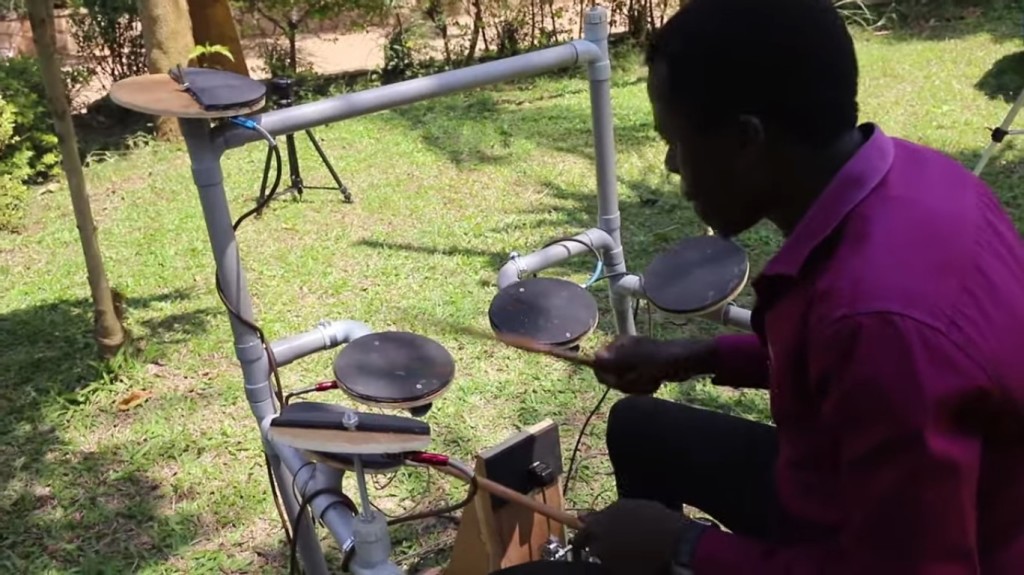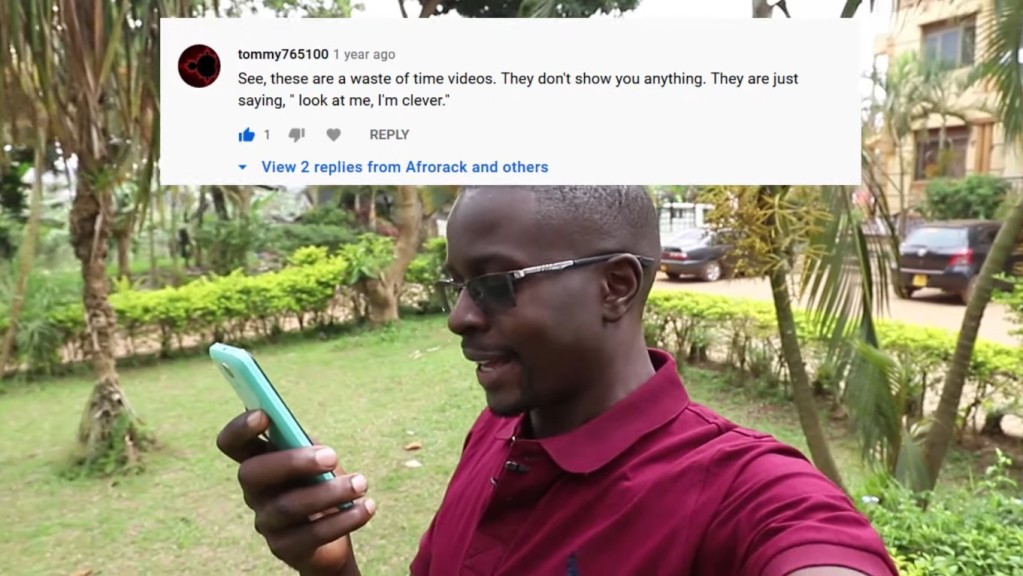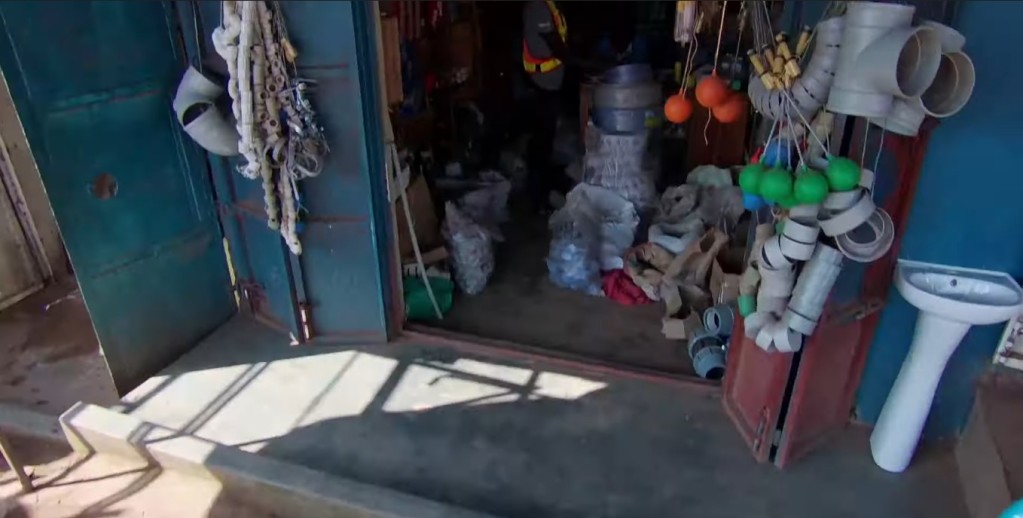No budget for an electronic drum kit? No problem. Brian Bamanya reports from Uganda on how to DIY the whole kit with readily sourced parts – and even adds velocity.
There is a feat here of mechanical ingenuity as well as electronic musical sensing. Brian, also going by the artist name Afrorack (unrelated to the Chicago project of the same name – different continent), crafted the whole project in the midst of the current lockdown rules in Kampala where he lives.
The kit itself is constructed with some power tools, wood, cans and scrap, and PVC pipe for the frame. For sensing, the ever-useful piezo element acts as a pickup. (Sometimes it’s easier to find piezo elements in other stuff than to get the part itself – he a couple out of some Brickgame toys.) An Arduino Micro translates electronic signals to MIDI or USB output for a computer or other gear.

There’s some great edits, plenty of atmospheric shots, rooster cameos, careful demonstrations of what not to do with the power tools – it’s a great watch.
The finished project really gives you what a commercial product would, with USB and MIDI plus separate trigger jacks.
I also thoroughly enjoy Brian responding to nonsense posts on YouTube:

Plus some market shopping in Kampala:


And yeah, this question of “can you buy the commercial kit” is totally uneven in different places in the world. Maybe that’s obvious, but I know a lot of people assume raw cost is the only measure – and it isn’t. Market access, buying power, import duty, and now COVID-19 disruptions all can make accessibility wildly different in different locales. Plus, once you do know how this works, you can make stuff that the manufacturers won’t. Speaking of which —
Physically modeled DIY open source drum kit?
Now, as it happens, you could modify this project slightly from a controller to a physically modeled drum kit using the scheme I wrote about earlier today from software developers CHAIR. So you could for example run audio from the pickup directly into their snare model:
I think you don’t want a kit made exclusively of snares (new genre?), but I know they’re also making use of tools like Pure Data, the free and open-source modular library.
You might also check out libraries like FAUST-STK, which includes a ton of physical models you might use to make your own kit (maybe a traditional kit, maybe play what Brian built but turn it into something unusual):
https://ccrma.stanford.edu/~rmichon/faustSTK/
You could go a lot further with that, but that might get you started.
See also his previous video:
And with the money you’ve saved, you can throw Brian some support on Patreon:
https://www.patreon.com/afrorack
Or via PayPal:
https://www.paypal.com/paypalme/afrorack
Have some music, too (also on this massive Nyege Nyege compilation):